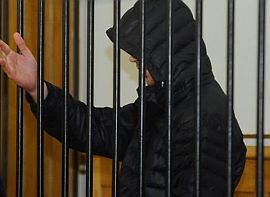Crime, EU – Baltic States, Internet, Latvia, Technology
International Internet Magazine. Baltic States news & analytics
Wednesday, 07.01.2026, 17:14
Latvia to extradite cyber-crime suspect Calovskis
 Print version
Print version |
|---|
Calovskis' extradition has been on the political agenda for a while now, with no specific decisions being made due to the various appeals Calovskis and his defense team have made to the Constitutional Court. Furthermore, there has not been consensus within the government coalition on this matter as well, as the Reform Party has stated that it is against him extradition.
Meanwhile, Calovskis' attorney Saulvedis Varpins said after today's government decision that he will immediately turn to the European Court of Human Rights with an appeal to issue a temporary order to halt extradition.
Varpins said that the European Court of Human Rights (ECHR) will then have 24 hours to make a decision. ''I hope that a plane with its motors on is not already waiting at the airport,'' Varpins said, adding that he will send the appeal to the court within the next several hours.
If found guilty by a court in the United States, Calovskis could face a maximum sentence of 67 years in prison. However, University of Latvia Mathematics and Information Institute senior researcher Bruno Martizans admits that no hacker convicted of crimes against banks has received a prison sentence of over 20 years, thus he believes Calovskis could be sentenced to two or three years in jail.
LETA reported previously that U.S. law enforcement institutions have brought announced charges against three alleged East European cyber thieves accused of stealing banking information from computers across Europe and the United States, including Calovskis.
The alleged international cyber criminals were responsible for creating and distributing a computer virus that infected over one million computers - at least 40,000 of which were in the United States - and caused millions in losses by, among other things, stealing online banking credentials, the federal prosecutor's office in Manhattan said.
The defendants allegedly used a malicious computer code or malware dubbed the "Gozi Virus" to hack into bank accounts and "steal millions of dollars," stated the indictment against Calovskis, also known as "Miami", who was arrested in Latvia.
Prosecutors say the scam unfolded between 2005 and March 2012 and that the virus was "virtually undetectable in the computers it infected." First, it was implanted in computers across Europe "on a vast scale," then around 2010 it spread to the United States, the Calovskis indictment said.
Meanwhile, Attorney Saulvedis Varpins, representing Calovskis, previously said that his client continues to categorically deny his involvement in the criminal group which used the ''Gozi Virus'' to access computer systems and steal personal banking information. Varpins told LETA previously that Calovskis has never admitted that he deliberately created or improved such a computer virus for such aims, and has not received any kind of payment for his services. ''Furthermore, we have not seen any kind of evidence confirming the U.S. point of view that Calovskis was involved with some sort of cyber-crime ring,'' Varpins said.








 «The Baltic Course» Is Sold and Stays in Business!
«The Baltic Course» Is Sold and Stays in Business!

